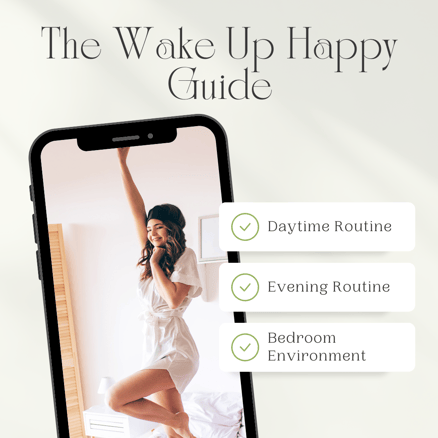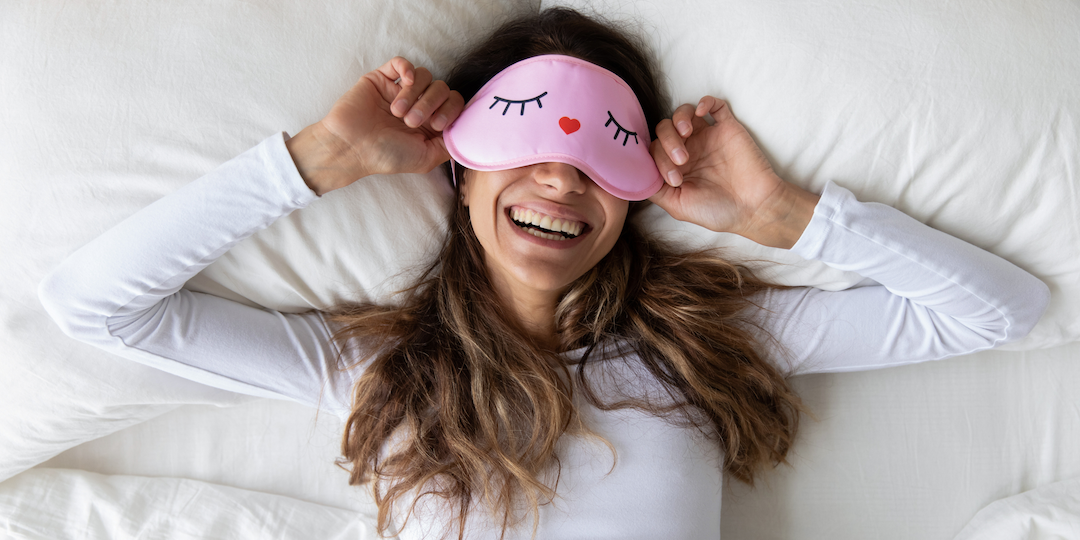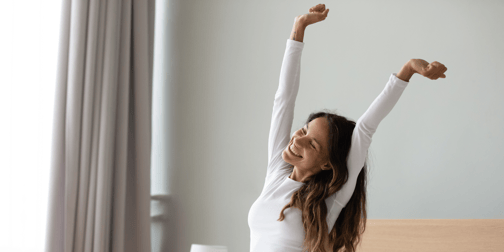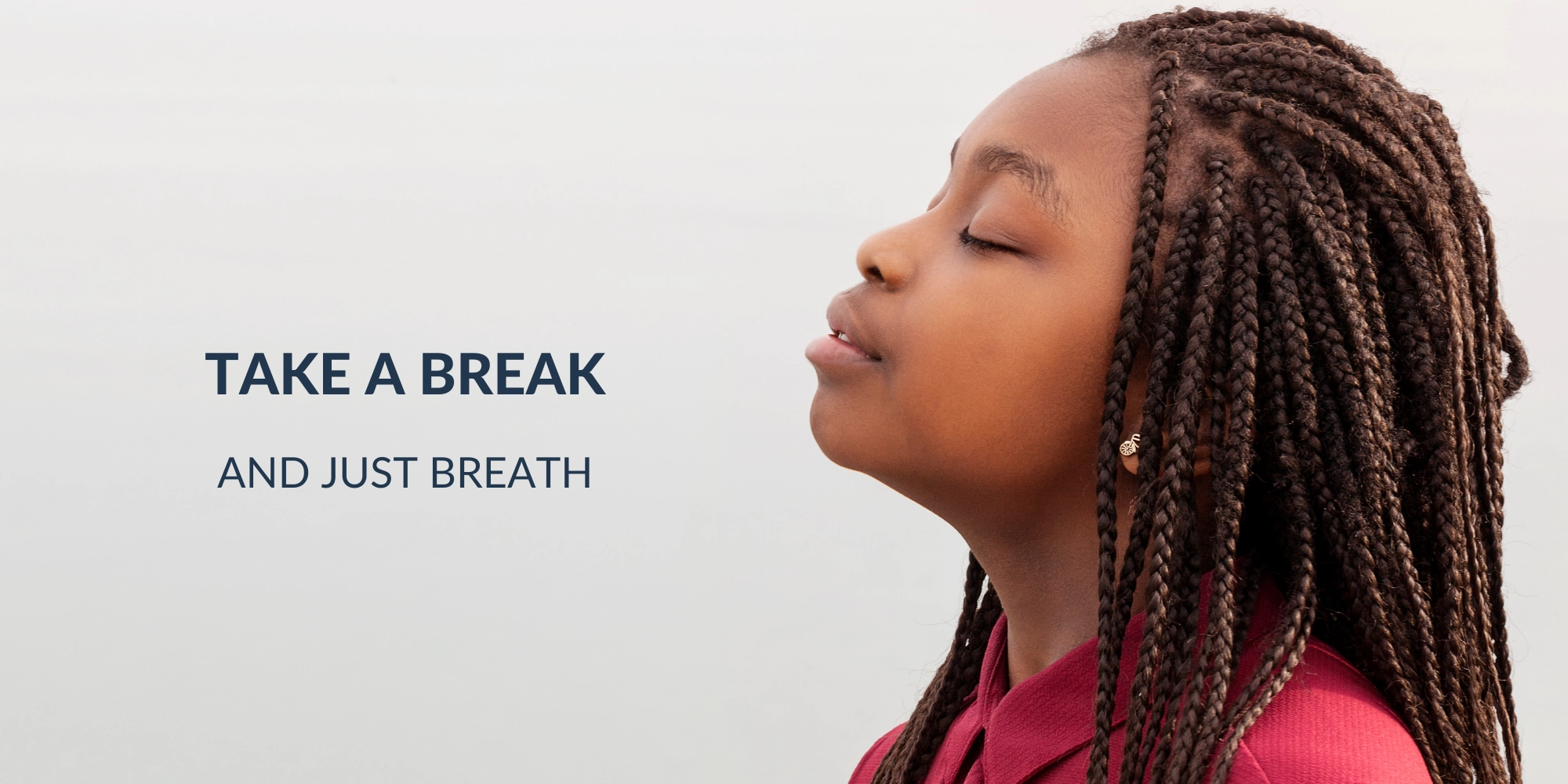"Early to bed and early to rise?" If only it was that easy. If you’re someone who can’t fall asleep on time (or seemingly at all), then it doesn’t matter how early you get to bed — it’s just not happening. Still, that doesn’t have to be the end of the story. It’s time to take a look at your sleep habits and see what you can do to improve your sleep quality.
Table of Contents
After all, as you’ve probably noticed, not sleeping well can affect your whole life. It’s been linked to health problems like heart disease and diabetes, it can increase the chances that you’ll have an accident or injury, and it broadly affects your mood and quality of life. That’s why it’s so important to make sleep a priority.
If you’re ready to find out how to start sleeping better let’s start by dividing the process into three basic categories.
A. Daytime Routine B. Evening Routine C. Bedroom Environment

Read on for 15 Sleep Tips to Help You Sleep Better!
A. Daytime Routine
It’s no secret that many sleep problems boil down to stress. Stress hormones like cortisol and adrenaline are stimulants that can agitate you and make it harder to sleep. So, if you have trouble sleeping, one of the best things you can do is try to reduce your stress levels during the day. One way to do this is by focusing on meaningful tasks during your waking hours rather than avoiding them.
Procrastination is a major cause of anxiety. Neglected habits like getting enough exercise can leave a real weight on your shoulders that can take a toll on your health. That’s because procrastination is often caused by anxiety, which can impact your sleep and all other aspects of life.
To reduce stress and get better sleep, take care of yourself during the daytime. Those self-care activities that you might have been putting off are more important than you realize.
1. Try Exercising More
Exercise during the day can help you get better sleep. It helps keep your body healthy and reduces stress levels that can cause disrupted sleep patterns.
In particular, exercise increases the time spent in deep sleep, which is the most restorative stage of slumber. Additionally, since exercise can help reduce stress and anxiety levels, it can help you fall asleep faster and stay asleep longer.
2. Practice Mindfulness and Meditation
Settling into a mindfulness and meditation routine can help reduce stress levels and improve overall mood — both of which are key for getting good sleep. A meditation practice will help relax your mind. You can also try setting aside time first thing when you wake up to kick your day off right.
Need a meditation coach? Find meditation classes and coaches on Sofia Health. Or subscribe to Sofia Prime for access to unlimited live meditation, yoga, and wellness classes.
3. Eat Healthy Foods
Food affects how well we sleep, so make sure that what you eat is healthy and wholesome. Eating processed foods and sugary snacks will make it harder for your body to relax and get a good night’s rest. Your diet should include plenty of lean protein and complex carbohydrates like whole grains and vegetables.
Some foods in particular are also thought to have a positive effect on sleep quality, such as cherries and bananas.
4. Take Fewer Naps
Your sleeping patterns should be consistent from one day to the next to help you follow your body’s natural circadian rhythm. If you’re having trouble sleeping at night, taking naps during the day will only make it harder for you to fall asleep later on. If you feel like you need an afternoon nap, try to keep it short. A 15-minute catnap is a good amount of time for most people.
5. Try Sofia Prime
A subscription to Sofia Prime can help you find a range of yoga, meditation, tai chi, qigong, fitness, and wellness classes offered by experienced instructors. The classes are offered at a variety of times, so you should be able to find a class that fits your schedule.
B. Evening Routine

It can be hard to relax after a long day, but it’s important to include a wind-down period. Your quality of sleep depends on it! Fortunately, there are a few things you can do in the evening to help you fall asleep faster and wake up more refreshed.
6. Minimize Blue Light
The blue light from your phones, computers, tablets, and TVs can keep you from falling asleep and staying asleep. Turn off all electronics at least 30 minutes before bedtime so that your body can wind down naturally.
It might also be a good idea to wear blue-light-blocking glasses before bedtime. These glasses reduce the amount of blue light you’re exposed to, which might make it easier for your body to get ready for sleep.
7. Take a Relaxing Bath or Shower
A warm bath or shower can help relieve tension and allow you to unwind before bedtime. If you’re looking for an extra boost of relaxation, try adding some calming scents for an aromatherapy boost like lavender oil or eucalyptus essential oil.
8. Read a Book
Reading is relaxing and keeps away other thoughts that might keep you awake at night. It also stimulates certain parts of your brain that are associated with sleepiness — try reading fiction or poetry and see how much that helps!
9. Try 15 Minutes of Yoga
Yoga has been shown to improve sleep quality, so it’s the perfect way to wind down after a long day at work or school. Keep it light and not very intensive, though — you’re going for relaxation, not exhaustion.
Find wind-down yoga and meditation classes on Sofia Prime.
10. Listen to Relaxing Music or Guided Meditations
The right music can help you fall asleep faster, sleep more deeply, and wake up feeling refreshed. Alternatively, consider trying healing sound therapies, such as sound bowls, or listening to a sleep-focused meditation, such as those you can find on Sofia Health, and see how it can help you sleep better.
To learn more about how meditation can help with sleep, check out our article "Meditation for Sleep"
C. Preparing Your Sleep Environment

The quality of your sleep environment can have a significant impact on the quality of your sleep. You need to create a space that’s conducive to rest, first and foremost, and then you can add in some fun, sleep-focused details.
11. Avoid Bright Lights and Noise
It’s important to create as dark a space as possible so that you can get quality rest. Consider installing blackout curtains or using eye shades to block out as much light as possible.
Also, try to minimize the amount of noise you hear in the room. If you live in an apartment building or another noisy environment, you can use a white noise machine to help drown out any distracting sounds.
12. Temperature
Studies have shown that sleeping in an overly warm room can cause people to wake up more frequently throughout the night. Your bedroom should be cool enough that it feels comfortable when you crawl into bed at night but warm enough that you also don’t get too cold while sleeping.
13. Use a Comfortable Mattress and Pillow
The right mattress and pillow can help improve your sleep quality by providing proper support to your body while you sleep. A good mattress should also be comfortable enough that you don’t feel you’re lying down on something hard. If your mattress is too firm or too soft, it could leave certain areas of your body feeling stiff.
A pillow that’s too thin or too thick can also make it difficult for you to get comfortable when you lie down.
14. Use Pleasant Aromas
Aromatherapies such as scented candles, essential oils, and diffusers are another easy way to create an inviting atmosphere for sleep at home. You can use them to decorate your bedroom, placing them near the bed to create a relaxing scent that can help you feel at ease and ready for sleep. You can even use scented oils or lotions to infuse your sheets or pillowcase with pleasant smells.
Make your own aromatherapy blends using essential oils. Find an instructor for a virtual class on Sofia Health.
15. Start a Sleep Journal
Start a journal or spreadsheet to keep track of your sleep patterns. You can use it to jot down how you feel during the day and at night, how much caffeine you’ve consumed, what time you went to bed and woke up, and more. This will help you identify patterns in your sleeping behavior that may affect your overall health.
Better Sleep is Possible!
If you’ve tried a few remedies and have had no luck, it might be time to talk with a doctor about your sleep troubles. In some cases, medical problems can be the source of your sleepless nights. Be sure to mention to your doctor any changes in your health or lifestyle that may be causing you trouble sleeping.
Hopefully, the list above will help you fall asleep faster and get all the rest you need to thrive in this busy world. If you'd like some help with your sleep, consider reaching out to a provider or coach on Sofia Health. We have a network of health and wellness professionals spanning a variety of specialties, from sleep specialists to physical therapists. Our goal is to connect you with the right provider, at the right time, so you can get the care you need to live your best life.





.png)

.png)

